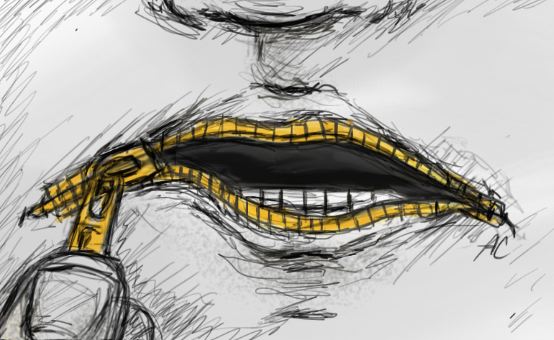
USD should provide greater outreach for male rape survivors
Everyone likes to roll their eyes at the Title IX training, and some disagree with its execution; however, the importance is obvious. Many of the topics addressed in the program seem like common sense, but plenty of students grew up in states mandating abstinence-only sex education.
Incoming students might be entering college as rape survivors from backgrounds that restrict survivors from feeling worthy enough to seek help. Religion, socioeconomics and race are all factors that can silence victims, but one such group stands out from the rest, female-on-male survivors, a group whose ranks I unfortunately stand among.
A focus on women is logical because it makes numerical sense, but that doesn’t excuse a failure to reach out to men. In my own case, I wasn’t even sure if a man could be raped. Sexual assault is a unique crime in which the victim is encouraged to direct blame inward.
Traditional ideas of masculinity usually include a man who never stops two things: controlling the situation and chasing coy women. Because the focus of educating the general public about sexual assault is so focused on men attacking women, the idea that a man could be raped by a woman doesn’t occur to most people.
The recent documentary “The Hunting Ground” almost broke through to this. The documentary about sexual assault on college campuses addresses men, but Dr. Danielle Dirks rips it from the rails of general acceptance of men and promptly focuses the documentary in on homosexual rape of men. This mental block runs so deep that the FBI definition of rape doesn’t even include a way that a man could be raped by a woman.
One of the primary arguments leveled against male survivors is that men can’t be raped unless aroused due to physiological differences. As with many popular misconceptions, the science doesn’t back this argument up for either gender. Even paralyzed men with no ability to control anything in the pelvic region are capable of reproduction. Science even suggests the body might enable sexual actions during a rape as a way of just finishing the act as soon as possible.
This stigma led to Piers Morgan declaring Shia LeBeouf made up his rape during a performance art project. Given the general misconception, confusion is understandable, but that doesn’t make it forgivable.
When I searched “can men be raped” on Google, hoping to find outreach and support, I was encouraged to see results suggesting that, yes, they could, and maybe I wasn’t alone. Finding others for support proved more difficult.
A search for “male rape support” pulls up a great deal of resources, but they are almost exclusively general resources, which, as previously mentioned, are mostly for women raped by men. Of course these are important, but it feels weirdly exclusive to fellow survivors. As a result, it’s taken me years to speak out or seek help at all. This is where the university should come in.
There’s little anyone can do to help female-on-male victims seek retribution. Men, unlike women, lack the option of a rape kit. They’re problematic for women in their own right, but it’s still a resource. There’s at least some science for women to seek justice, but men truly rely on word alone.
Facing greater difficulties to deliver male survivors justice, the least both a campus and a society can do is reach out to support this marginalized minority just as they do with the majority. USD needs to do more to find and help men like me. Ignorance of a problem is no vice, but ignoring a problem is a moral failure on an institutional level.
